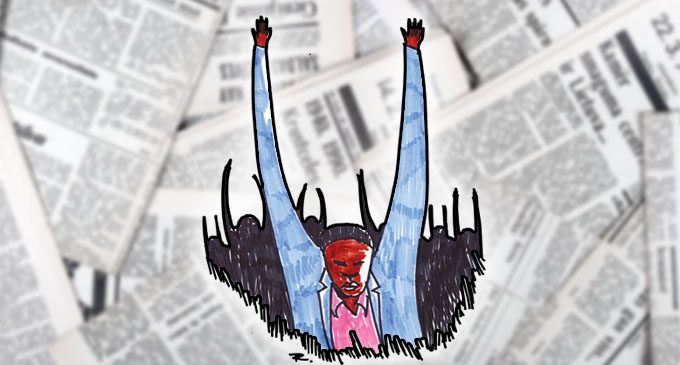Column: How communities decide ‘enough is enough’

Kimye N. Denni
Guest Columnist
Over the past days there has been peaceful protests and some rioting in response to Charlotte resident Keith Lamont Scott being yet another black man shot by law enforcement. The name of the officer was released by Charlotte-Mecklenburg Police, Officer Brentley Vinson – a black man. There remains debate over whether Mr. Scott was brandishing a gun in a threatening way to law enforcement; or, if Mr. Scott simply had a gun, that he had a right to own, holstered (not brandishing) since North Carolina is an open carry state; or, if Mr. Scott only had a book in his hand.
The family released a video his wife took on Friday, Sept. 23. Parts of two videos pertaining to this incident were released by Charlotte-Mecklenburg Police Department on Saturday, Sep. 24. Despite the release of videos from different angles, there remains outrage and debate regarding why Mr. Scott was approached by police and was eventually shot.
While investigations are ongoing, there has been substantial media coverage of peaceful protests and some rioting. For example, “Anderson Cooper 360” and “CNN Tonight with Don Lemon,” both live on CNN, have covered a great deal over the past few days. I continue to hope the agitating and rioting is kept to a minimum.
Unfortunately, two protests became riots that involved violent altercations between protesters and law enforcement, looting businesses, and broken windows in apartment buildings. For many blacks this simply highlights longstanding issues between law enforcement as well as segregation (both socioeconomic and racial) that has existed in Charlotte long before Charlotte became a tourist attraction, an athletic attraction and academic spotlight.
The perceived disconnect between public perception of Charlotte and what many blacks in Charlotte experience is perhaps connected to a number of factors including how, over the years, Charlotte has become a “Chocolate City” that has attracted a large amount of blacks, including young black professionals, in a similar fashion as Washington, D.C. and Atlanta, Georgia.
This is an example of inconsistencies and inequalities that have existed for generations and cannot be “cured” through quick fixes. Therefore, we will continue to challenge these inconsistencies and inequalities in Charlotte and across the country.
As we already know, healthy protest is when we are not agitating and not harming anyone – ourselves or other people. There is enough violence in the United States and around the world. We need to express our disagreements in ways that are vocal enough to get attention but peaceful enough to maintain legality and over-all health and safety. We know that we cannot physically force our voice to be heard. We cannot physically force people to take us seriously.
Therefore, we must stay informed and active in our communities. We must remain united to keep our communities safe and healthy. We will also continue to challenge the stereotype of blacks as violent and uncontrollable. Instead, we are very capable of having informed dialogues and informed, orderly disagreements and protests. We will not be dismissed as unreasonable and in need of being controlled.
As we unite toward social change, we will use freedom of speech and have peaceful, non-destructive protest. These are healthy, lawful ways to support Mr. Scott’s family, as well as other families, and hold law enforcement accountable for all investigations. On the evening of Sept. 21, Rev. Dr. William Barber said something on “CNN Tonight with Don Lemon” to the effect of, “you can be anti-‘bad police’ and pro-‘good police.’” I agree whole-heartedly.
Kimya N. Dennis is a sociologist and criminologist with interdisciplinary work that includes suicide and suicidal self-harm and mental health. Her work reaches vast audiences with particular emphasis on blacks and the African diaspora. She is on the board of directors for LEAD Girls of NC, The Mental Health Association in Forsyth County, and North Carolina chapter of American Foundation for Suicide Prevention.















